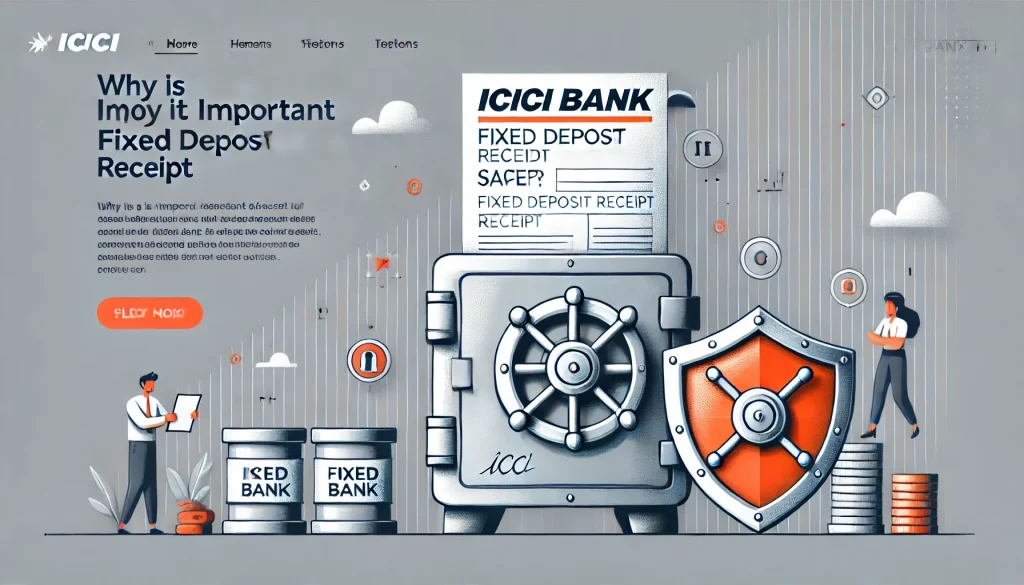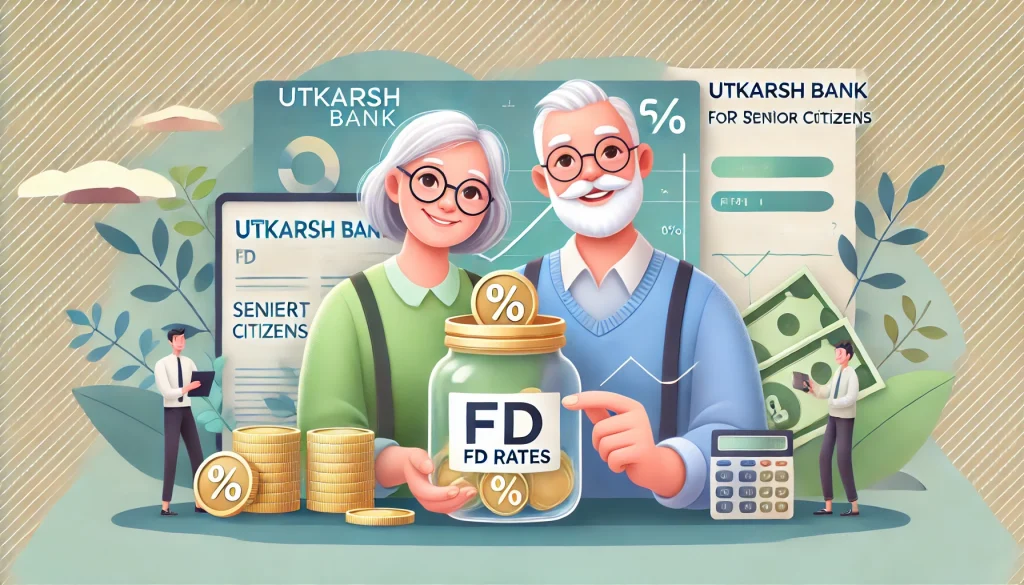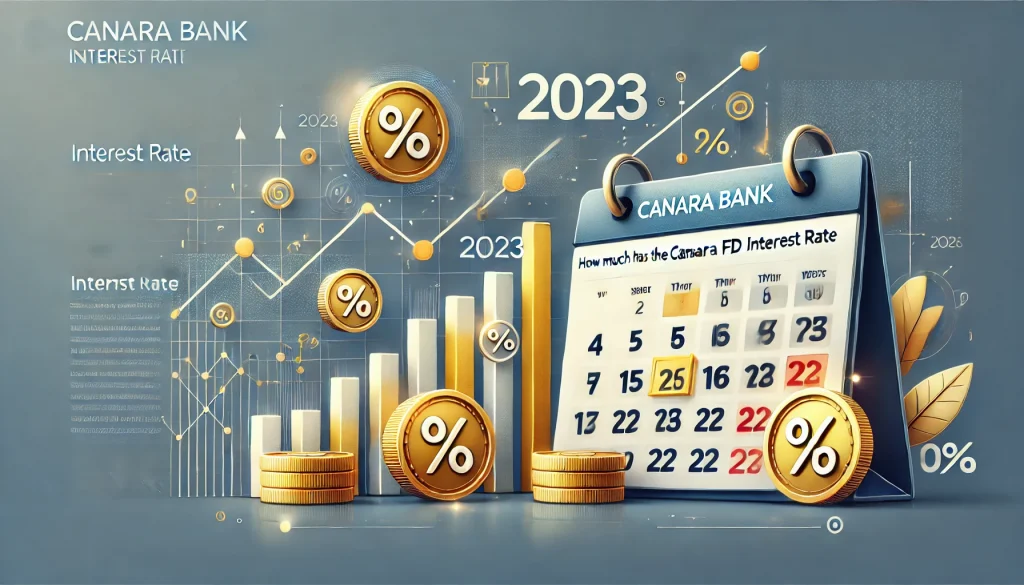
In today’s fast-paced world, it is essential to have a solid financial plan for the future. One such investment avenue that individuals often explore is term deposits. In this blog, we will delve into term deposits, understanding what they are, how they work, the different types available, their features, benefits, and the process of opening and closing an account.
What is a Term Deposit?
A term deposit, also known as a Fixed Deposit, is an investment option offered by banks and financial institutions that allows individuals and businesses to invest a fixed sum of money for a specified period at a predetermined interest rate. Unlike other investment options, such as stocks or mutual funds, term deposits offer a fixed return on investment, making them ideal for risk-averse investors seeking stability.
How Term Deposit Works?
When you open a term deposit account, you agree to deposit a specific amount of money, known as the principal, for a predetermined period, called the term/duration. The term/duration can range from a few months to several years, depending on your preference and the terms offered by the financial institution. During this period, the deposited funds are locked in, and you cannot withdraw them without incurring a penalty.
In return for locking your money, the financial institution pays you a fixed interest rate, typically higher than that of a regular savings account. The interest can be paid out at regular intervals, such as monthly, quarterly, or annually, or reinvested into the term deposit, compounding over time.
Types of Term Deposits
There are various types of term deposits available to cater to different needs. Some common types include:
- Fixed Rate: In this type of deposit, the interest rate remains fixed throughout the entire term, providing certainty and predictability.
- Callable: It gives the financial institution the right to recall the deposit before maturity. While they generally offer higher interest rates, the flexibility for the institution may limit the depositor’s control.
- Variable Rate: The interest rate is variable and fluctuates with market conditions. This type of deposit offers the potential for higher returns but carries some risk.
Features of Term Deposits
Term deposits come with several features that make them an attractive investment option. These features include:
- Fixed Tenure: Term deposits have a predetermined tenure, allowing you to choose the duration that suits your financial goals and requirements.
- Guaranteed Returns: Unlike investments susceptible to market fluctuations, term deposits provide assured returns on the invested amount.
- Security: Term deposits are considered safe investments as the guarantee that the financial institution typically backs them. In many countries, deposits are insured up to a certain limit by government deposit insurance schemes.
- Flexibility: Financial institutions often offer flexible options, such as the choice of interest payment frequency and reinvestment of interest earnings.
Benefits of Term Deposits
Investing in term deposits offers several benefits, including:
- Capital Preservation: It offers a reliable means to preserve capital, ensuring the safety of your investment.
- Predictable Returns: With fixed interest rates, term deposits provide a predictable income stream, allowing for better financial planning.
- Risk Management: As term deposits are not subject to market fluctuations, they act as a buffer against economic uncertainties, making them suitable for risk-averse investors.
- Diversification: Including term deposits in your investment portfolio can provide diversification, balancing higher-risk assets with a stable, fixed-income instrument.
How to Open a Term Deposit Account?
To open a term deposit account, follow these simple steps:
- Step 1: Research
- Compare term deposit offerings from different banks or financial institutions to find the one that suits your requirements.
- Step 2: Select the Term
- Determine the duration of the term that aligns with your financial goals and select a plan accordingly.
- Step 3: Documents
- Prepare the necessary identification and address proofs and other documents as the financial institution specifies.
- Step 4: Visit the Bank
- Visit the chosen bank or financial institution and approach the customer service desk to open a term deposit account.
- Step 5: Deposit Funds
- Provide the required deposit amount and complete the necessary paperwork to finalise the account opening process.
- Step 6: Receive Confirmation
- Once the process is complete, you will receive a confirmation statement detailing the terms and conditions of the term deposit.
How to Close a Term Deposit Account?
Closing a term deposit account involves the following steps:
- Step 1: Check the Maturity Date
- Be aware of the maturity date of your term deposit account, as premature withdrawal may result in penalties.
- Step 2: Inform the Bank
- Contact your bank or financial institution well in advance to notify them about your intent to close the term deposit account.
- Step 3: Provide Instructions
- Specify whether you want the funds to be transferred to your linked account or if you prefer receiving a physical check.
- Step 4: Complete the Closure Process
- Fulfil any formalities the bank requires, sign the necessary paperwork, and provide any requested identification documents.
- Step 5: Receive Funds
- Once the account closure is processed, you will receive the principal amount and accrued interest per the term deposit terms.
Important Considerations Before Investing
Before you rush to open a term deposit account, consider the following:
- Interest Rates: Compare interest rates offered by different banks to get the best deal for your investment.
- Lock-in Period: Determine the duration you can afford to lock in your money, as withdrawing before maturity may result in penalties.
- Inflation Impact: Consider inflation rates while calculating your potential returns to ensure your money maintains its value.
- Penalties for Early Withdrawal: Familiarize yourself with the penalties in case you need to withdraw your money before the maturity date.
- Reinvestment Options: Decide whether you want your returns reinvested in the Term Deposit or transferred to your regular account.
Conclusion
In conclusion, Term Deposits are a reliable and secure investment option for individuals looking to grow their savings without taking significant risks. They offer guaranteed returns, low risk, and various terms to suit different financial goals. However, it’s crucial to research and compare different banks and financial institutions to find the best terms and interest rates for your needs. By following the tips mentioned in this blog, you can make the most of your investments and secure your financial future.
FAQs
The minimum deposit amount varies between financial institutions. Check with your chosen bank for their specific requirements.
While it is generally not recommended to withdraw funds before the maturity date, some term deposits offer flexibility with early withdrawal options. However, penalties or reduced interest rates may apply.
Yes, term deposits are often insured by the government up to a certain limit, providing additional security to the investor.
Yes, the interest earned on term deposits is typically subject to income tax. It is advisable to consult with a tax professional to understand your specific tax obligations.
Many financial institutions offer automatic renewal options for term deposits. It is essential to inquire about this facility at the time of opening the account.
Disclaimer
This article is solely for educational purposes. Stable Money doesn't take any responsibility for the information or claims made in the blog.


